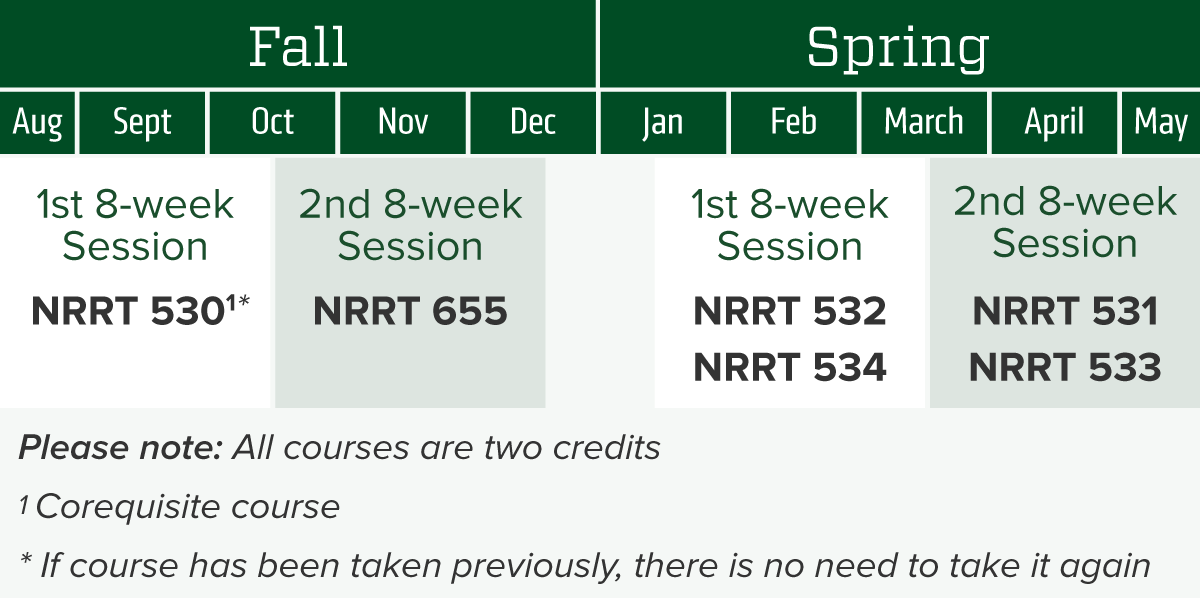


Select one of the options below:

Please note, Adventure Tourism classes will not be offered after the 2023/2024 academic year. If you complete your application and are admitted, you must enroll in all 6 courses in the fall 2023 and spring 2024 terms/semesters to complete the certificate. If you have any questions, please contact Kathryn.Metzger@colostate.edu.
"The outdoor recreation industry represents a new economy," according to Luis Benitez, director of the Colorado Outdoor Recreation Industry Office. "The leaders of this economy will need to have a deep understanding of our natural resources, and how to integrate the components of innovation, health, and wellness into a vision for what comes next."
Gain the skills required to successfully develop and manage land-, water-, and air-based adventures. Offered in a flexible online format, the adventure tourism certificate allows students from around the world to complete coursework from wherever they are. Courses include narrated presentations, discussion groups, and a range of multi-media content, including video interviews with industry experts.
Faculty blend operations management practices with natural resource management practices, focusing on a collaborative approach rather than a business model based on competition. Everyone wins when you do the right things for the environment, the community, and the venture.
Become a leader in the industry with the ability to:
Tourism is one of the largest employers on the planet, and continues to experience steady growth. In its 2017 Global Economic Impact Report, the World Travel and Tourism Council reported that, "Over the next 10 years, the sector will support 23% of new jobs created."
If you're inspired by the outdoors and would like to align who you are with what you do, the tourism industry offers many options for advancement and career shifts. Through online coursework designed with input from industry experts, this certificate in travel and tourism will prepare you for management roles within these types of organizations:
The adventure tourism certificate offered online is a companion to the Master of Tourism Management (M.T.M.) degree. Three courses, up to six credits, earned through the certificate can be applied toward the degree as directed electives (NRRT 655 and any other two adventure tourism courses). View the certificate curriculum for more information. Credits can transfer into the master’s program (with a grade of B or better) after formal admission per University transfer policies. However, successful completion of the courses or certificate does not guarantee admission to the degree program.
This flexible, online graduate certificate offers eight-week accelerated courses that were designed with close input from tourism industry managers and operators. Learn to:
The Graduate Certificate in Adventure Tourism requires the completion of six courses.
Up to three courses from this program may be applied to our online Master of Tourism Management degree, including NRRT 655 and any other two adventure tourism courses.
You must be admitted to this program for the certificate to appear on your official University transcript.
Each course is offered in an eight-week format. Some classes will be offered in the first eight weeks of a semester and others will be offered in the second eight weeks.

| Fall semester | N/A |
| Spring semester | N/A |
Note: This program is not currently accepting applications
The online adventure tourism graduate certificate requires that students have a bachelor's degree from a regionally accredited institution.
While it is not required, it is recommended that you contact us in advance of submitting application materials. Prepare the materials below and upload when you apply online.
Note: This program is not currently accepting applications.
Request one official transcript from the institution where you earned your bachelor’s degree. Transcripts from Colorado State University are not required. Transcripts must be received directly from the originating institution to be considered official.
Electronic (preferred): Digital Transcripts must be submitted by the originating institution using a secure service such as parchment, eScrip-Safe, the National Student Clearinghouse, or e-Quals. Transcripts received via emails are considered unofficial. Use institution code 4075 for Colorado State University or gradadmissions@colostate.edu if the secure service requires an email address.
Mail (if necessary) Graduate Admissions Colorado State University – Office of Admissions 1062 Campus Delivery Fort Collins, CO 80523-1062
View your application status at any time to ensure your application checklist is complete or to check on updates.
Once your complete application, including supporting materials, is received, the department admission committee will review your application and notify you of their decision.
Proof of English language proficiency is required for applicants from countries or United States territories where there are official languages other than (or in addition to) English. This includes the U.S. territories of American Samoa, Guam, the Northern Mariana Islands, and Puerto Rico.